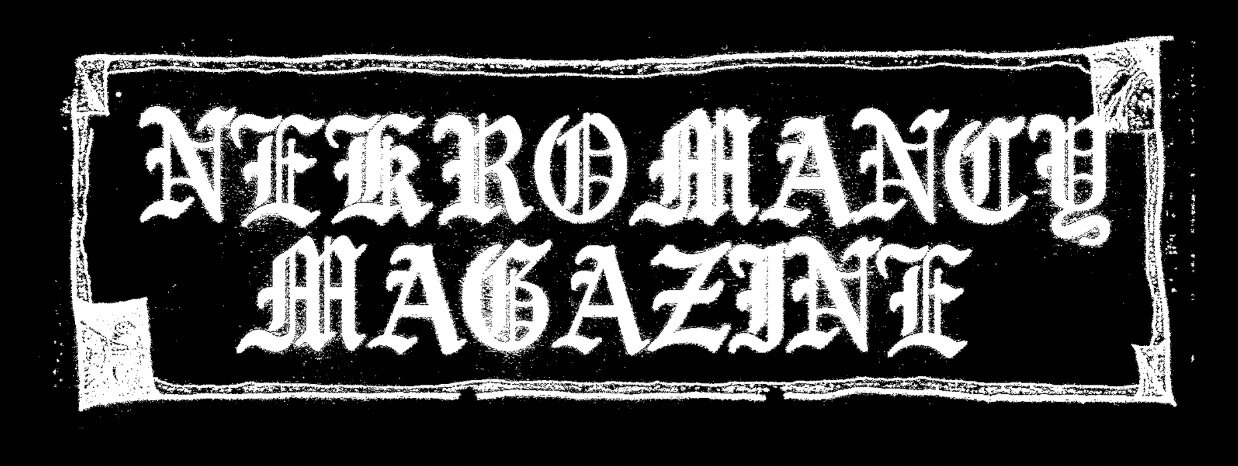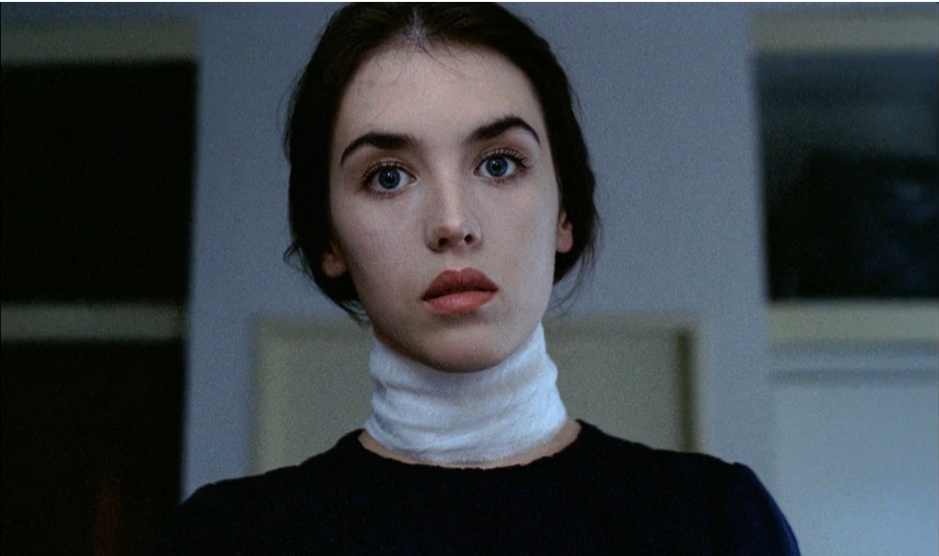Mucus, Madness and Motherhood: The Exhausting Relevance of Anna
February 11, 2022 ● Amber T
Possession (1981) Gaumont
In 2019, I decided to join a community of horror writers and took the first step by making a dedicated Instagram page to house my reviews. After choosing a username, writing a bio, the time came to choose a profile picture. I wanted a screenshot, an iconic moment in horror, one that would combine my love of nuanced female characters and bleak endings. The choice seemed obvious; the wide-eyed, Munch-esque screaming visage from Andrzej Żuławski’s 1981 psychological horror Possession. In my naivety, I thought that among countless Freddys and Jasons, the image of this woman, mouth full of blood and foam, would be a rarity. After all, Possession still remains very firmly in the camp of cult; disliked upon release but still fervently loved by a subsect of the community. However, what I found was that Possession remains specifically a favourite of women in the horror community, some of whom very kindly volunteered to share their reasoning with me in this article. What exactly makes a film released 40 years ago so relevant and loved by today’s women, many of whom were not even alive during its inception, or conscious for the events dictating its sociopolitical leanings?
The answer, in short, is Anna.
Written in the throes of a traumatic divorce himself, Żuławski presents the story of Mark and Anna, estranged husband and wife whose marriage is broken, bloodied and barely hanging on for dear life. Their union is held together only by the love of their son Bob, and Mark’s unhealthy obsession with his wife – who is attempting to shed her identity, and invite in something more sinister. But within Anna’s madness lie moments of clarity that speak to the lived experiences of women, both in 1981 and to this day.
As her marriage descends down a spiral of violence and Anna’s mental state deteriorates, the men in her life tighten their desperate grasp on her. Physically, this manifests in Mark blocking her way, moving in front of doorways to prevent her movement and refusing to respect her personal space. There’s also her lover, Heinrich, forcing his body on hers and exclaiming that only he has ‘rights’ to her (lending the film’s title yet another unsettling homophone).
Possession (1981) Gaumont
Mentally, Mark pushes Anna to the very limits of human frustration: constantly smothering her with questions on her whereabouts and actions. Even when Anna thinks she is by herself, she is watched and hunted by the PI hired by Mark. The only person who supports Anna’s desire to be alone is her friend Margie - another woman. Anna’s lack of autonomy and physical restriction resonates with women even today, especially in a time where numbers of domestic abuse reports have skyrocketed due to lockdown and subsequent lack of means of escape for victims. Alison Taylor, author of Devil’s Advocates: Possession, expands on the idea that the ‘struggle between one's desire for autonomy, and the pressures imposed by the expectations of others is what resonates for me as a woman’. In an attempt to regain this autonomy, Anna takes shelter in a place of her own (an apartment eerily reminiscent of Charlotte Perkins Gilman’s hysteria-focused story, The Yellow Wallpaper), which is almost immediately infiltrated. From archaic property laws forbidding women to own their own homes to the recent string of UK femicides, it’s a sorry testament to the reality that women have seldom been afforded the luxury of being safely left alone.
However, there is one moment when Anna is alone, one which is arguably Possession’s piece de resistance; the infamous subway scene. As Anna narrates a story to Mark about a miscarriage (which could be real or metaphorical) we witness her, deep below Berlin’s city streets, overtaken by a violent energy that is the very epitome of unbridled feminine rage. If one is to read the film with a focus on its narrative vein of religion and theology, this is arguably the moment where Anna is taken over by the titular spiritual phenomenon. Through a more human lens, here is a scene in which a woman – pushed to her limits by society’s expectations of her – finally breaks. It’s a masterfully ghastly performance by Adjani (who was understandably emotionally harrowed by the experience), one that is both heartbreaking and horrifying in equal measure as Anna explodes with the repressed rage of millions of women. After all, the patriarchy’s expected trajectory of a woman’s life is traditionally marred with enough agony to make Anna’s breakdown completely understandable. Tori Potenza, feminist film critic and outreach manager for MovieJawn zine, expands, positing that there is something ‘inherently wild and violent about womanhood…some women bleed monthly, give birth to children, face sexual violence and unhappy or abusive relationships.’
Possession (1981) Gaumont
In a post-pandemic world, the scene holds even more poignance. More than any other time in living memory, we move through a world that fears the human body; repulsed by expulsions, hands red raw from sanitiser, our fluids potentially harbouring a devastating blow to our friends and family. As Anna revels and rolls in filth, leaking green slime and viscous goo, descending into the depths of ferality – there’s a sense of release for those of us who feel further removed from their physical form than ever.
After Anna recounts her unravelling, seemingly looking for support, Mark tells her that he finds her ‘uglier’– the true expression of emotion not fitting into his fantasy of what Anna should look or behave like. Luckily for Mark though, he has already replaced Anna and her ‘vulgar’ form when he meets Helen, Bob’s schoolteacher and a woman close to being Anna’s double in physical appearance. With her light hair and even lighter eyes, Helen is a male fantasy made flesh; a purer, sweeter, more docile Anna, one who will dote on Mark and Bob in the role of ‘our mummy’. She is the angelic antidote to Anna’s demonic descent, her clean white dress contrasting against Anna’s dark blue one that becomes more and more encrusted with grime as the film progresses. Even Helen’s job is the very symbol of feminine care and devotion. In contrast, Anna is frequently shown as failing in her designated role as mother, leaving her son alone in a dirty apartment. It is Helen that cleans up Anna’s mess, dutifully washing dishes, cleaning meat from knives and restoring order to the kitchen; the domicile of a subservient woman. In her role as a doppelganger, Helen plays a part that Anna is no longer able or willing to. Mark details that Anna used to have a job until she quit a year ago, around the same time that their marriage – and Anna’s mental health – started to deteriorate. Anna is an unwilling participant in ‘second shift’ lifestyle; balancing a job and life as a mother and all of the unpaid labour that comes with it. It is an expectation that has exhausted women for centuries, and one that shows no signs of letting up. If anything, quite the opposite. Dr Carol Landau, psychologist and professor at Brown University, details that the COVID19 pandemic has only added an extra shift to the working woman’s lifestyle. For women who are socially pressured into having it all, ‘it’ comes at a price – their emotional, physical and mental wellbeing. Watching Anna’s consistently thwarted attempts to put herself first, alongside her guilt of feeling trapped in a traditional family dynamic presents her as a complex female character who, demon squid lover aside, provides an experience that Alison Taylor refers to as ‘cathartic […] seeing a woman on screen so radically untethered from enculturated gender expectations.’
While the world, in general, may still remain a scary place for women, in terms of horror, we’ve never had it better. A slew of recent box office hits have been helmed by older women, LGBT women and WOC. Female directors such as Julia Ducorneau, and Nia DaCosta have had their debut works incredibly well received with prestigious awards. And the success of films such as Midsommar (2019) and Censor (2021) has proven that the representation of women’s mental health is still a topic rich in relevance and ripe for exploration despite how frightening or ‘ugly’ it may be – and we have Anna to thank for that.
Thank you to Alison Taylor (@preferenepas) and Tori Potenza (@theneonbanshee) for their incredibly detailed responses to my questions and valuable contributions to this piece.
Alison Taylor’s Possession is available here:
https://liverpooluniversitypress.co.uk/books/id/55126/
Anyone interested in buying directly from the publisher can use the code AUTEUR30 for 30% off
Tori Potenza’s podcast episode on Isabelle Adjani can be found on @killerbspod and Movie Jawn is available here: https://www.moviejawn.com/shop
Amber T ● Writer
Twitter: @hornbloodfire
Instagram: @hornbloodfire
Over-opinionated horror enthusiast. Loves Asian horror so much she moved there to ghost hunt.



